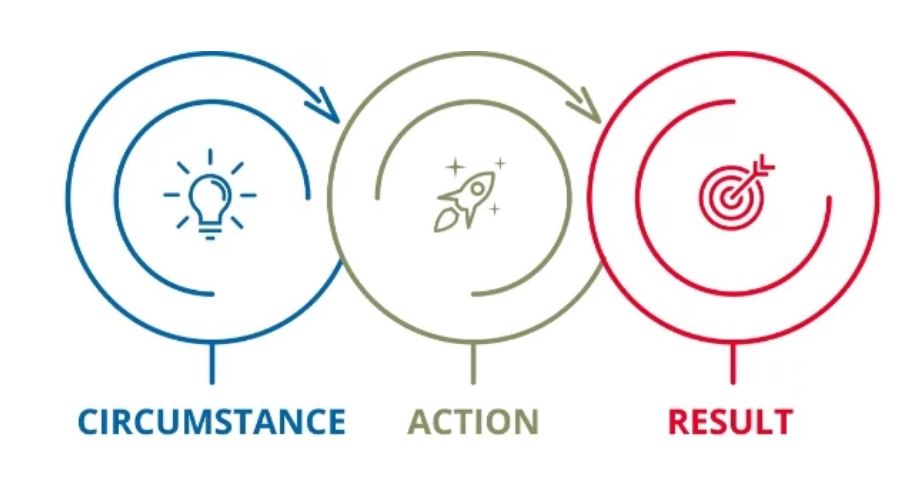
The process for pastoral placement in a church is similar to that of secular job search, sort of. The big chunks are largely the same. Just like secular employment, you will fill out an application, submit a resume for review, go through a series of interviews, have your references checked, and if all goes well, receive an offer (or a call) to serve. Pastoral ministry search takes each of these elements to a much deeper level and personal level.
X Things You Need to Know Before Your First Interview
- Depending on the church, your first contact may be through a denominational official such as a district superintendent. For independent/non-denominational churches, your first contact will likely be through a representative from the church such as an elder, deacon, or representative from the pastoral search committee (PSC).
- Before scheduling a formal interview with the PSC, you may have a pre-screening interview to determine base level suitability and fit.
- Churches vary significantly in their approach to the pastoral candidating/interviewing process. Some are well-prepared and organize while others…not so much.
- It is likely that you will have sent links to sample sermons when you made your first application. I would suggest that you have at least another three ready in the event that additional samples are requested. Since it is likely that preaching will be a cornerstone element of your ministry, provide links to sermons that you feel are most representative of your preaching style.
- Just like secular job search, pastoral placement involves multiple interviews. Some have as few as two, others could be four or five.
Before scheduling

Tips for First Time Pastoral Candidates
Can you say “awkward?” There is no way around it. The pastoral search process definitely has its’ share of quirks: from managing diverse and even conflicting ministry expectations to being asked questions that no secular employer would ever dream of asking. For “first timers,” these questions can come as a bit of a shock.
To help you navigate the world of pastoral placement interviews, here are a few tips to help you be better prepared for this one-of-a-kind placement process experience.
Being Better Prepared for Pastoral Ministry Interviews
Timelines: How long is this going to take?
Ministry placement timelines vary widely. Some churches will move quickly; others not so much. The pace depends on the church’s sense of urgency and a variety of other factors. Generally speaking, the process takes longer than secular placement.
By the way, in secular work, if a position stays open for too long, HR will step in and either push for it to be filled or perhaps even close the requisition and leave it unfilled. Churches are not under such constraints.
Interview Questions: Wow! Can they ask that?
Yep! Get ready for some personal questions—sometimes very personal.
- Questions about your level of current debt and how you spend your money.
- What do you do with your free time?
- How supportive are your spouse and kids of your desire to be in full-time ministry?
- Where do you stand on a variety of issues (divorce, how you handled COVID, your opinion on presidential leadership, etc.)?
- Questions about unresolved conflicts, either personal or professional.
- Inquiries about past addictions or legal issues.
- How do you plan to educate your children: homeschool, private school, or public school?
Understanding the Pastoral Search Committee
Smaller churches may not have access to the pastoral search resources that larger churches can more easily afford. Additionally, in the case of fully independent churches, everything is coordinated by the local church without assistance from denominational leadership.
The church may have a well-defined and cohesive pastoral search process, or it may not. In most cases, the pastoral search committee is comprised of individuals from the church—typically members, elders, deacons, board members, etc. The pastoral search committee (PSC) could be as small as three or four members or as large as a dozen or more.
Regardless of their size or makeup:
- Pastoral search committees are seeking to do the Lord’s will in finding the next pastor for the church. This is a great responsibility, and the outcome of their work will impact the church for years—perhaps even decades to come.
-
- It is unlikely that PSC members are professional recruiters or deeply experienced in human resources. You may find yourself in a position where, as a candidate, you are providing next-step directions for the committee.
-
- PSC members are volunteers and are likely also involved in other ministries in the church, in addition to their family, employment, and community responsibilities. If the pace seems to be dragging, this may be one reason.
Behavioral Interview Questions: Using the CAR Method

The CAR Method for Answering Interview Questions
Nope, sorry. This has nothing to do with your 2016 Toyota Camry.
As with secular work, interview questions for pastoral ministry tend to be behavior-based. Rather than looking for a simple “yes” or “no” answer, interviewers ask for specific examples of how you behaved in certain situations. Behavior-based questions attempt to get at how a behavior or competency has been utilized. This approach is founded on the belief that past performance is an indicator of future results.

For example:
- Tell us about a time when you had to respond to a conflict in a previous ministry or work setting.
- Can you give an example of a time when you helped to reorganize or revitalize a struggling ministry?
- How have you responded to criticisms that you felt were either unfair or unfounded?
The CAR method is a tool that is often used to answer action-oriented interview questions. CAR stands for three elements of the answer to nearly every behavioral interview question.
CAR
- Circumstance: Describe the circumstance you were facing.
- Action: Outline the actions you took to respond to the circumstance.
- Result: What was the result—the outcome—of your actions?
Advantages
- Gives your answers structure, helping you to stay focused on the question being asked and preventing rambling and rabbit trails.
- Communicates a more action-oriented and intentional approach to problem-solving.
- Helps you to better communicate the scope of your experience and the skills/competencies you have developed.
Example:
Tell us about a time when you had to respond to a conflict in a previous ministry or work setting.
Circumstance: While ministering at First Community Church, there was growing concern regarding our nursery ministry. The nursery was originally set up to accommodate infants and children up to age 2. Over time, the nursery became a drop-off location for children in the three- to five-year-old range. This created a fair amount of frustration for our nursery volunteers and the parents of the kids.
-
Action: Our nursery coordinator and I had a conversation with the parents of the three- to five-year-old children to better understand their needs. Most of them felt that their kids were not ready for the more structured Sunday school classes that were being offered. It took a while, but we developed a new area called “Samuel’s Nook.” This was a place for kids who were too old for the nursery but not quite ready for a more structured Sunday School class.
-
Result: This helped relieve pressure on our nursery volunteers and provided a solution for parents who wanted to be at church but needed structure for their beginner-aged kids.
What if I never had experience in that particular area?
The purpose of the questions is to help identify your problem-solving skills and how you respond under pressure. If you have never had a particular ministry experience, avoid saying, “I don’t know, that never happened to me.” Instead, give a hypothetical response indicating what you would do if you faced that situation.
“On the one hand, I don’t think I have encountered that in ministry. If I did, though, this is what I would do…”
Then briefly outline the steps you would take.
Keys to Success with “CAR”
- Keep it focused: Stay on track with the intent of the question. In the above example, focus on the steps you took to respond to a conflict in the church.
-
- Keep it short: If your answer takes more than a minute or two, you are giving too much information.
-
- Keep it positive: Everybody loves a happy ending. If the situation did not end as positively as you would have liked, share briefly about how you would do it differently in the future.

Pet Peeve #0314 “That’s a good question.”
Please, I beg of you, stop beginning your answer to interview questions with “That’s a good question!”
I know it’s a good question. That is why I asked it. If I thought it was a stupid question, I would not have asked it. Telling me “that is a good question” does not improve the quality of your answer, nor does it make me more receptive to what you say.
While I know you are trying to make me feel good, it does not cause my heart to swell with pride because you thought my question was “good.” Frankly, it feels patronizing.
If I wanted feedback on the quality of my question, I would have asked for it—said something like, “Do you think that was a good question?”
Please stop!
OK, I feel better.